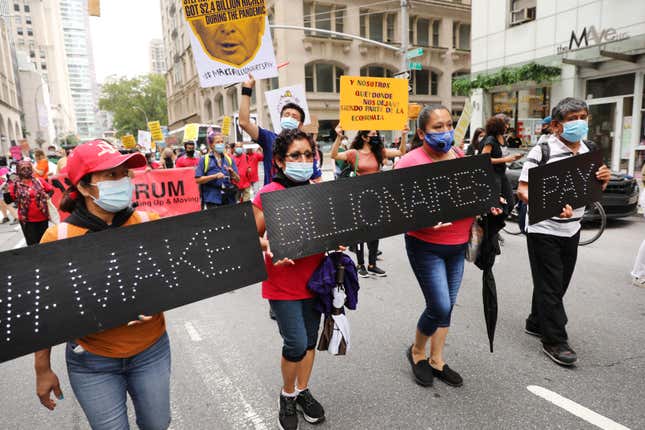New York May Actually Tax the Rich
Politics

New York lawmakers are nearing a deal with Governor Andrew Cuomo to raise taxes on New York City’s highest earners.
The income tax proposal, which is part of the state’s budget negotiations, would create two new temporary personal income tax brackets for the city’s millionaires, the New York Times reports. People who make between $5 and $25 million would pay 10.3 percent of their earnings; and those who make more than $25 million would pay 10.9. Currently, the highest income tax bracket is 8.82 percent, which applies to single filers making $1,077,550 or more. (Joint filers who make $2,155,351 or more fall within the same bracket.)
-

-

-

-

-

-

-

-

-

-

-

-

-

-

-

-

-

-

-

-

-

-

-

-

-

-

-

-

-

-

-

-

-

-

-

-

-

-

-

-








































